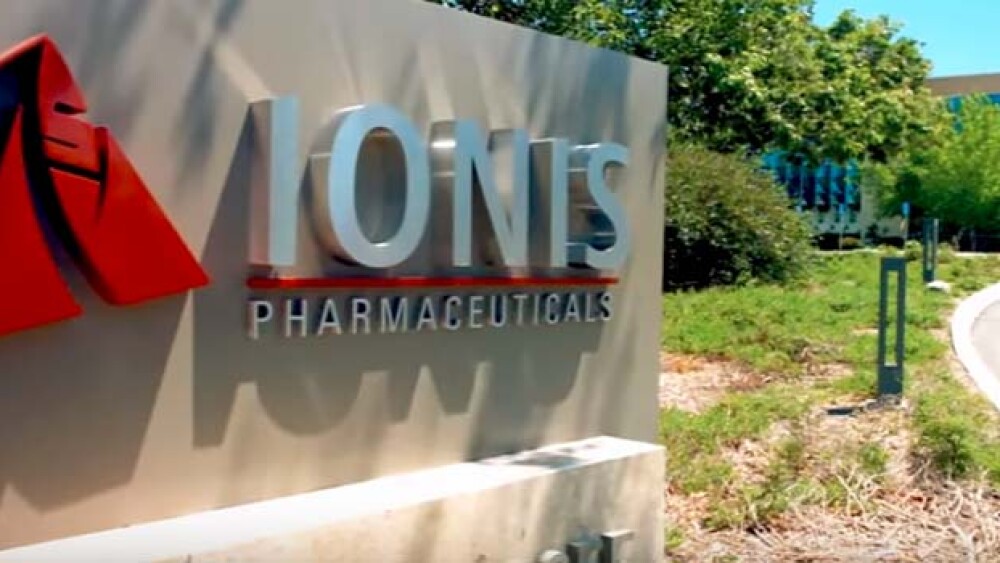Ionis announced that the FDA has accepted its NDA for tofersen for SOD1-ALS. The application has been given the priority review designation and an action date of January 25, 2023.
Ionis Pharmaceuticals announced that the U.S. Food and Drug Administration has accepted its New Drug Application (NDA) for tofersen for the treatment of superoxide dismutase 1 amyotrophic lateral sclerosis (SOD1-ALS). The application has been given the priority review designation and an action date of January 25, 2023.
Tofersen’s NDA was submitted by biotech behemoth Biogen, which licensed the candidate from Ionis in 2018.
Along with a Phase I study in healthy volunteers and an ascending-dose Phase I/II study, data from the Phase III VALOR trial formed the basis of tofersen’s application. VALOR, a six-month randomized study that enrolled nearly 180 patients, was designed to assess the safety, tolerability, pharmacokinetic profile and clinical efficacy of tofersen in ALS patients with a confirmed SOD1 mutation.
In October 2021, the candidate failed to meet its primary endpoint of improvements in disease activity from baseline, as measured by the Revised Amyotrophic Lateral Sclerosis Functional Rating Scale. However, tofersen showed signals of efficacy in secondary and exploratory endpoints. In particular, earlier treatment suppressed neurofilament blood levels, a known neurodegeneration marker.
In filing the NDA, Biogen is hoping to leverage the neurofilament data to seek approval for tofersen under the FDA’s accelerated approval pathway. Hopefully, bolstering its application is the candidate’s good safety profile, with less than 20% of VALOR participants discontinuing due to side effects. Common adverse events associated with tofersen included headache, back pain and falls.
“Acceptance of the new drug application for tofersen is a monumental milestone, not just for Ionis but for all people with SOD1-ALS, their families and healthcare professionals battling this devastating disease,” C. Frank Bennett, Ph.D., executive vice president, chief scientific officer and franchise leader for neurological programs at Ionis, said in a statement. “To them we extend our deepest gratitude. Their courage has been instrumental to the achievement of this goal.”
“We also want to thank Biogen for their commitment to advancing tofersen, which, if approved, will be the first treatment that targets a genetic cause of ALS,” Bennett added.
ALS is a rare and progressive neurodegenerative disease that afflicts neurons in the brain and spinal cord. Early symptoms include twitching muscles and muscle cramps, which then worsen to muscle weakness and difficulties speaking or eating. ALS is an ultimately fatal condition: patients are often given three to five years to live from symptom onset. Those who harbor mutations in the SOD1 gene live even shorter lives.
The SOD1 gene and its protein product work to clear toxic molecules and other harmful substances from the body. But when mutated, as it is in around 2% of ALS patients worldwide, SOD1 is not only rendered dysfunctional but also becomes damaging itself, leading to an even bigger build-up of toxins. In turn, this results in massive neuron loss in ALS. Tofersen is an antisense oligonucleotide (ASO) that solves the SOD1 problem by binding mutated SOD1 mRNA and tagging it for destruction.
Tofersen is Biogen’s third and most successful ALS candidate with Ionis. In March this year, the companies announced that the ASO BIIB078 failed its Phase I study and was discontinued. The other ALS hopeful is BIIB105, also an ASO, which targets the ataxin-2 protein to slow ALS progression.






